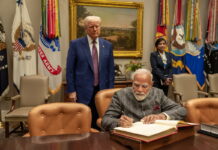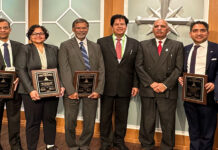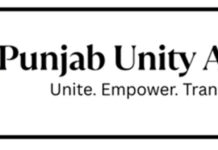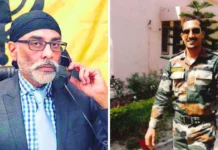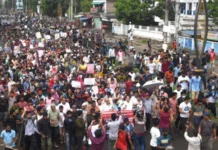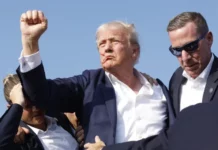In and interview with Aroonim Bhuyan of India Post, Fiji’s High Commissioner to India Yogesh Pujan voiced appreciation for Prime Minister Narendra Modi’s initiative to bring the 14 Pacific island nations together, spoke about the achievements of Fijians of Indian origin and gave a brief profile Fiji Indians living in the US. Excerpts:
Q: What are the priority areas for you in India, given the distance between the two countries? How would you describe the state of bilateral ties?
A: If I was to rate between 10 being extremely good and one being starting, we are probably around three or four in the sense that we have a long way to go. The opportunities are immense. Interesting part is that India is both growing and grown in the sens that you have got certain regions already and some regions still developing. For us, as a third world country, we still have a lot of room to grow. So, learning from what you are doing here is a boon to us.
Q: Prime Minister Narendra Modi’s government has reached out in a large manner to the Indian diaspora across the world. How are Fijians of Indian-origin reacting to this?
A: Number one we congratulate Prime Minister Modi for his reappointment. We are extremely happy with the fact that we are now continuing from his first appointment. You may have seen the pictures above us that your Prime Minister has been to Fiji. Having been to Fiji and understood what we are about and what the country is about makes a lot of difference. We appreciate the initiative that he has taken, the Prime Minister has taken, in getting the Pacific together. We are meeting… there is an organization we call FIPIC (Forum for India-Pacific Islands Cooperation) and this year we are going to meet in Papua New Guinea hopefully around November. So, the engagement with the diaspora is very big. We speak in Hindi, Our culture, our food, our religious practices. So, although we are all Fijians but the core of us is still closely linked with Indian culture.
Q: Fijians of Indian origin, forming around one-third of the country’s population of around 900,000, actively contribute to the politics and economics and form an integral part of the society of Fiji. Can you describe the role of this community in today’s Fiji politically, economically and other areas?
A: See, in the Fijian economy the Indian community has a major role to play. Our major income is through sugar. A lot of the sugar industry is managed by the Indo-Fijians, the Indian community. But also in the business side. We are also active in government. Our ministers are of Indian origin. I can understand how India would see us. You know, your focus is on the Indian community. We all see from where we are aitting. We see everybody as one because we speak the languages of each other,
Q: Can you list some major achievements of Fijians of Indian origin?
A: I am not sure if you aware that in 2016, the Governor General of New Zealand was Anand Satyanand, brn in Fiji, brought up in Fiji, migrated to New Zealand. So he is a Fijian of Indian origin. We have here in India a gentleman by the name of Bhaichand Patel. He has been part of the UN and has been in the UN system for many, many years. Probably you have heard of Madam Nazhat Shameem (Khan) who is Vice President of the UN Human Rights Council. We have Dr Satendra Nandan who has been a very strong advocate of the law of the sea. And he has also been involved with poetry. I think literature is also important. So, like this we have many. Moti Tikaram who was a high court judge. We have Vijay Singh. He is a Green Jacketer. Like that, we have many achievements.
Q: There are many Fijians of Indian origin in the US too. Can you please tell us about the reasons for their immigration there, the fields they are active in and their major achievements there?
A: Obviously, many people are migrating for economic reasons, in search of greener pastures. Many of them gone because of new job opportunities in the US. That has been the major driver. Obviously, the US has a policy wherby you can invite your parents to come across, cousins and brothers to come across. That is how the population has grown. But at the end of the day, even though they are in the US, they are still connected to Fiji. You may be surprised to know that we get in access of $600 million by the way of remittances from Fijians all over the world, not only from the US. A lot of them have gone into professions, businesses, doctors, lot of blue collar jobs. Some of them are doing very basic manual work in the sense they do cleaning work, they do shop-owners. So, from the average to a highly professional group, so it is a combination of both.
Q: How do you see Fiji’s role in the global fight against climate change given that your country has become the hub of the Pacific?
A: We are the voice of the vulnerable nations, the smaller Pacific island nations and other nations around the Pacific, around the globe where we have all been affected in a big way. This is saying that, you know, if there is a gas leak in a mine, the canaries come out first. In the sense that the gas has been released. We are the canary in the name meaning that we are the ones most affected. We are the countries that are the least contributors to carbon emissions footprint… For your country, the bigger countries, it is fine. If you lose one metre of your shoreline, it is not going to affect you or you will probably not notice it. But one metre in a Pacific shoreline is a massive impact. And one metre in the case of Kiribati for that matter, it will mean total isolation, total decimation of the entire country. So, some of the challenges we are faced with, we can feel it within… I think this climate change agenda is a world agenda… For the same reason we signed the ISA (International Solar Alliance), we were the first people on the charter to sign the ISA. We believe that we need to find alternatives.


